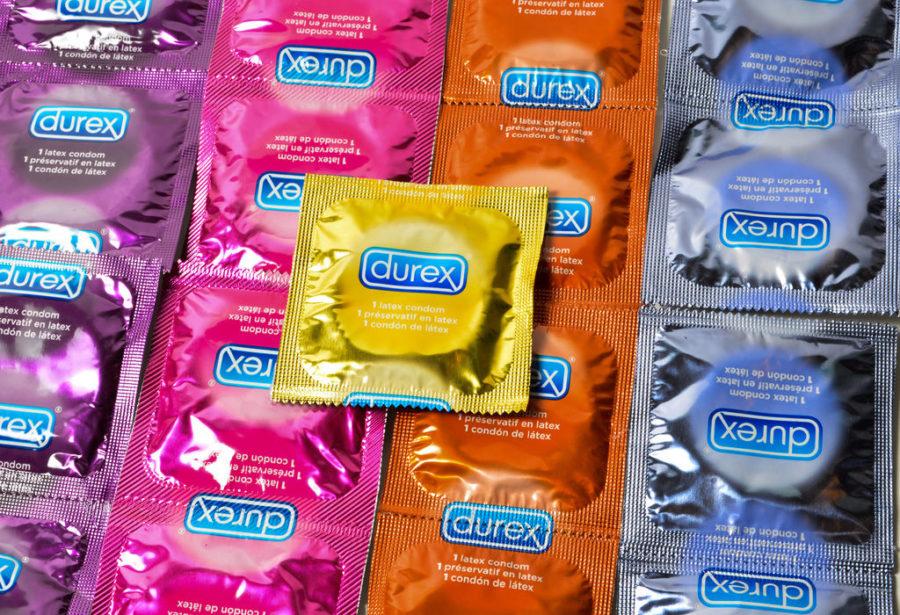“The Talk”: Sexual Health and Safety
From condoms in bathrooms all across campus to free testing at Thielen Student Health Center, students have many resources for staying safe during sex.
February 28, 2019
Intimacy can be a difficult thing to talk about. The conversations can be awkward or uncomfortable, and as a result, they often get swept under the rug.
In an attempt to mitigate the discomfort of such an omnipresent issue, the Daily is introducing a new series: “The Talk.”
Through this series, we will discuss issues such as dating apps, sex work, sexual safety and more. We plan to publish one story each week for the rest of the semester addressing an issue related to relationships or sex.
Our hope is that by the end of “The Talk,” we may have opened our readers up to these discussions in ways they hadn’t thought of or may not have felt able to speak about before.
Many of these issues affect a lot of our readers, and we’re ready to talk.
Only 26 out of the 50 states require sex education be taught in schools, according to the National Conference of State Legislatures. Because of this, many young adults are left uneducated, confused and unaware about the possible risks surrounding the topic of sex.
Because physical intimacy is often a large part of college culture, the health risks and the possibility of disease are more present now than ever in one’s life.
Iowa State gives students access to dozens of free resources on campus when it comes to sexual health, such as providing condoms in bathrooms all across campus to free STD testing at Thielen Student Health Center.
According to the Raleigh Medical Group, the most common sexually transmitted disease in the United States is the HPV virus. While most HPV cases often cause little to no harm, others can lead to other serious complications, such as cervical cancer. A simple way to prevent HPV is vaccinations.
Laura Pesquera-Colom a senior in biology and the Director of Student Wellness within the Iowa State Student Government, is responsible for proposing a bill that would provide 100 STD testing kits at Thielen Health Center. The inspiration behind the bill was to provide students with “free, confidential STD testing on campus to reduce barriers for students to get tested.”
“I hope that students will deliberate over the possible consequences of having unsafe sex and understand that it’s not worth it to risk your health,” Pesquera-Colom said. “If you aren’t safe during a sexual encounter, you can suffer the consequences for the rest of your life.”
According to the Raleigh Medical Group, the most common sexually transmitted illness in the United States is Chlamydia. While both men and women can contract this STI, it’s more detrimental for women as it can lead to complications within their reproductive system, making it more challenging for them to become pregnant in the future.
The leading cause of Chlamydia is unprotected sex. Using condoms and other contraceptives are ways to prevent contracting Chlamydia. Because there are no common symptoms for Chlamydia, it is also encouraged to talk with your partner about your sexual history before engaging in physical activity as well, according to the Raleigh Medical Group.
“Your sexual health doesn’t only affect you, it can affect multiple people because STD’s are highly transmissible, and people can have multiple sexual partners throughout their college career,” Pesquera-Colom said. “At the end of the day, it is a personal choice but as long as people are aware of the consequences, I feel like we’ve done our job.”
Students can learn more about sex, and the culture surrounding it by joining CUFFS. According to the club’s page on the student organization database, CUFFS is an “educational and social discussion group for people interested in alternative sexuality such as BDSM, fetishes, and other expressions of safe, consensual and non-exploitive human sexuality.”
“Since we are an LBGTQIA+ club as well, we talk about sex education on levels that are more inclusive than traditional sex education that may be taught in schools,” said Landry Elman, freshman, and outreach coordinator and treasurer for CUFFS club. “We also participate in Sex in the Dark.”
Sex in the Dark is an annual event hosted on campus to teach students about sexual health. A panel of “sexperts” answer questions to students while wearing glow-in-the-dark accessories.
All questions are written on sheets of paper, and remain anonymous. At the event, attendees are given bags filled with resources on campus relating to sexual health.
“As a society we have to understand that not everyone chooses to be abstinent and we need to make a better effort to educate our community about not just pregnancy prevention but also disease prevention,” Pesquera-Colom said. “By providing students with prevention-based education and resources we can improve quality of life of our students by avoiding diseases that could severely affect their reproductive health.”







